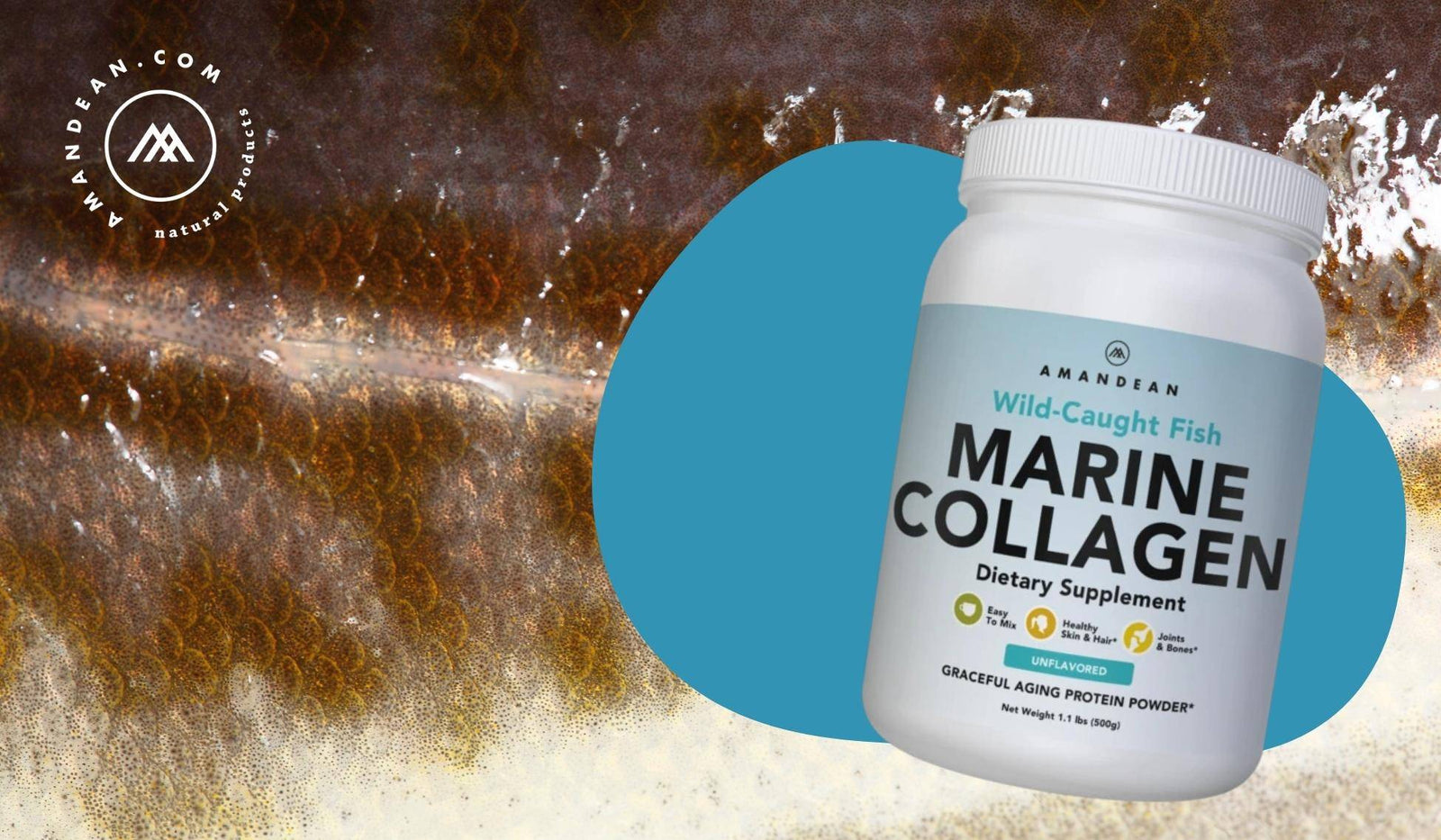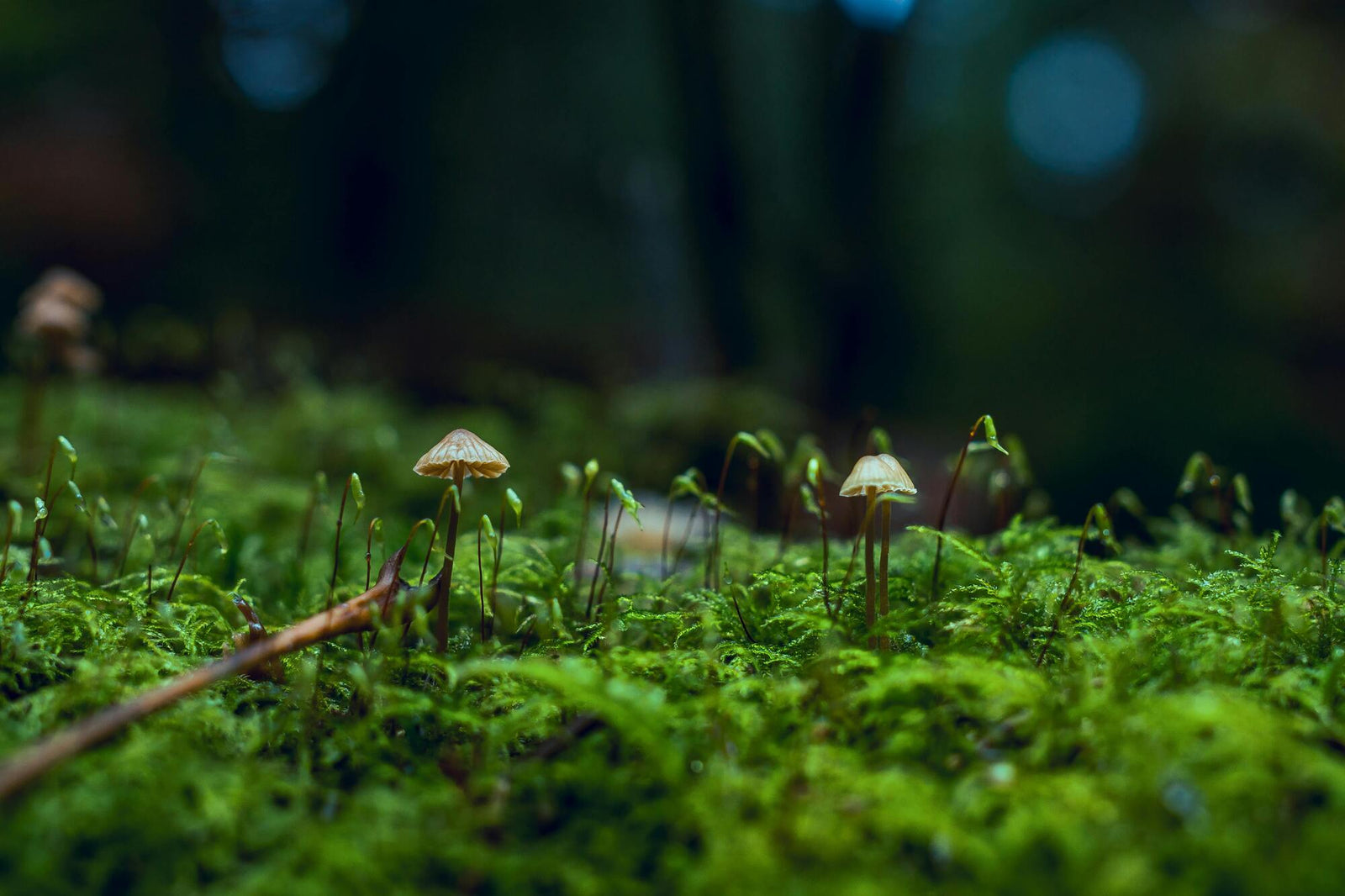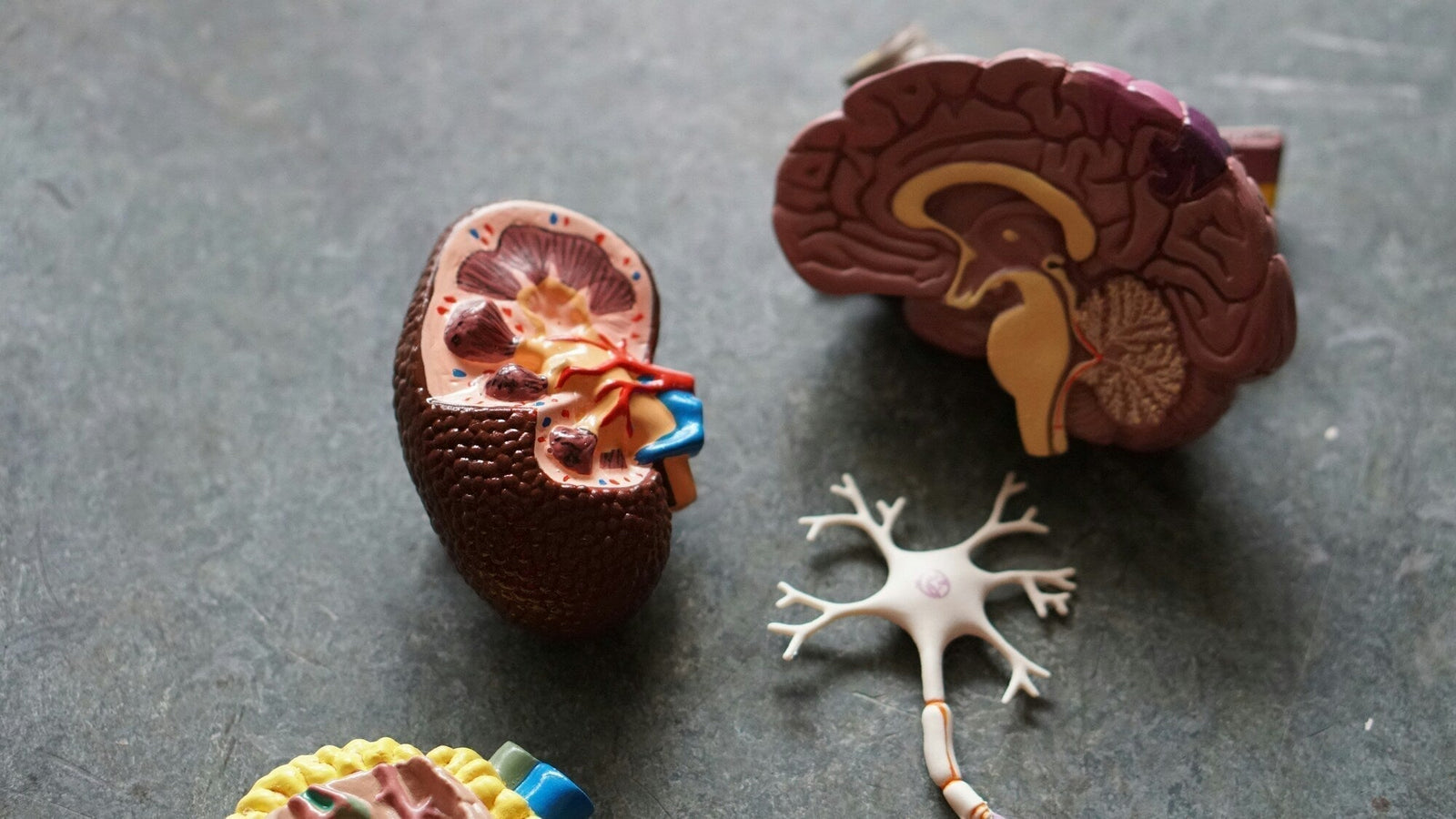Your Cart is Empty

November 01, 2022 4 min read
Collagen on its own is a fibrous protein that can be found all throughout the human body, especially in the connective tissues. Collagen proteins act as building blocks that stack upon each other to provide cushiony, flexible, and strong support to the joints, ligaments, skin, muscles, blood vessels, and intestines. Collagen is everywhere and it has a very important role as the "anti-aging" protein. Since collagen production levels are high leading up to our mid-twenties and thirties, typically joint health, bone strength, gut health, skin elasticity and hydration, and muscle and wound recovery all benefit. After this age, however, the body starts to produce less and less collagen. Slowed collagen synthesis is eventually met with fine lines and wrinkles, joint pain, osteoarthritis, bone loss, and muscle atrophy. One way to combat this decline in collagen is with collagen supplements, which brings us to marine collagen.
Marine collagen refers to collagen derived from fish. Just as humans and other mammals produce collagen, so do fish! Fish collagen can be extracted from both the skin and scales of fish and then hydrolyzed into a pure and highly bioavailable supplement called marine collagen peptides. It is one of the most pristine and reliable collagen sources on the market. Different sources of collagen include bovine collagen (from cows), porcine (from pigs), and chicken collagen.

If there are multiple sources of collagen, why should you choose one over the other? Well, that depends on a couple of factors, mainly purity, bioavailability, and desired outcome.
Collagen is a triple helix protein made up of amino acids glycine, proline, and hydroxyproline. When consumed, collagen gets broken down into these three amino acids, which then stimulate further collagen synthesis and support various functions of the body. Proline, for example, is especially useful in improving joint health and speeding up skin and wound healing. There are multiple types of collagen proteins as well. Though they are composed of the same aminos, these collagen types have specific benefits and are found in different concentrations throughout the body.

The benefits of marine collagen can largely be traced back to type I collagen and type III collagen. Both of these collagen types are great for bone health, hair, nail, and skin health, and muscle building. Compare this to chicken collagen which is said to be high in type II collagen and particularly good at soothing joint pain. It's difficult to identify exactly how many collagen types any one source or batch of collagen contains, but marine collagen has been shown to have many benefits commonly associated with collagen types I and III. If these are the benefits you seek, then marine collagen powder is a great choice for you!
Marine collagen is also the purest and most sustainable form of collagen, or at least it has the potential to be. Amandean's premium marine collagen powder is made from wild-caught fish that are sustainably fished in the North Atlantic. This minimizes any risk of contamination of antibiotics or disease that commonly taints mass-farmed fish. It's also considered more eco-friendly compared to bovine collagen because it requires less feed and land, produces fewer emissions, and makes use of a by-product that would otherwise be discarded.
Lastly, one might choose marine collagen due to its bioavailability. Marine collagen has a lower molecular weight, which allows it to be absorbed and used by the body more easily. In short, it's a better bang for your buck! Plus, it's a great option for pescatarians!

As we mentioned briefly above, marine collagen is derived from fish. Through a process called hydrolysis, the collagen naturally found in both fish scales and fish skin can be turned into pure collagen powder, which can then be absorbed and used by the human body. Without this process, the collagen cannot be effectively processed by the body, rendering most dietary sources (like fish filets) useless. Most marine collagen supplements contain collagen from both skin and scales.
It's rare that a supplement could isolate just skin or just scales as its sole source of collagen. Neither skin nor scales is better or worse at delivering the benefits of collagen. If you want to ensure that you choose the highest-quality and most effective supplement, then consider the source of the supplement (i.e. wild-caught fish) and the processing methods (cGMP-certified facilities) as the most important factors.

At Amandean, we are dedicated to providing the purest, most effective, and most sustainable supplements possible. Our Premium Marine Collagenis sourced from sustainably-caught, wild-caught cod in the pristine waters of the North Atlantic. You can determine the quality of a marine collagen supplement by:
Don't fall for a gimmick! Both fish skin and scales are great sources of collagen when processed correctly. Ultimately, the animal from which the supplement was derived, the processing, and the conditions in which the animals were raised will make the greatest impact on the end product.
Do you have any questions? Reach out to the Amandean team to learn about how we ensure the highest quality of our supplement from sourcing to packaging!
Collagen proteins act as building blocks that stack upon each other to provide cushiony, flexible, and strong support to the joints, ligaments, skin, muscles, blood vessels, and intestines.
Fish collagen can be extracted from both the skin and scales of fish and then hydrolyzed into a pure and highly bioavailable supplement called marine collagen peptides.
Marine collagen is also the purest and most sustainable form of collagen.
Marine collagen has a lower molecular weight, which allows it to be absorbed and used by the body more easily.

March 03, 2025 7 min read
Discover how Bryan Johnson, a tech entrepreneur turned biohacker, uses cutting-edge science and personalized genetic testing to revolutionize health and longevity. Learn how biohacking, from diet to mental health practices, can help you live longer and healthier, with practical strategies to optimize your well-being. Find out more about genetic testing, and ways to implement results into your wellness routine.

February 19, 2025 6 min read
Explore the remarkable health benefits of medicinal mushrooms like Lion’s Mane, Turkey Tail, Chaga, and Reishi. These superplants support immune function, reduce inflammation, and boost brain health. Learn about Amandean's Brain Health supplement, combining Lion’s Mane, Magtein, and Alpha-GPC for optimal cognitive performance.

February 10, 2025 7 min read
Unlock your brain’s full potential with Amandean’s Brain Health Supplement. Packed with Magnesium L-threonate (Magtein), Lion’s Mane Mushroom, and Alpha-GPC, this formula enhances memory, focus, mood, and cognitive longevity.